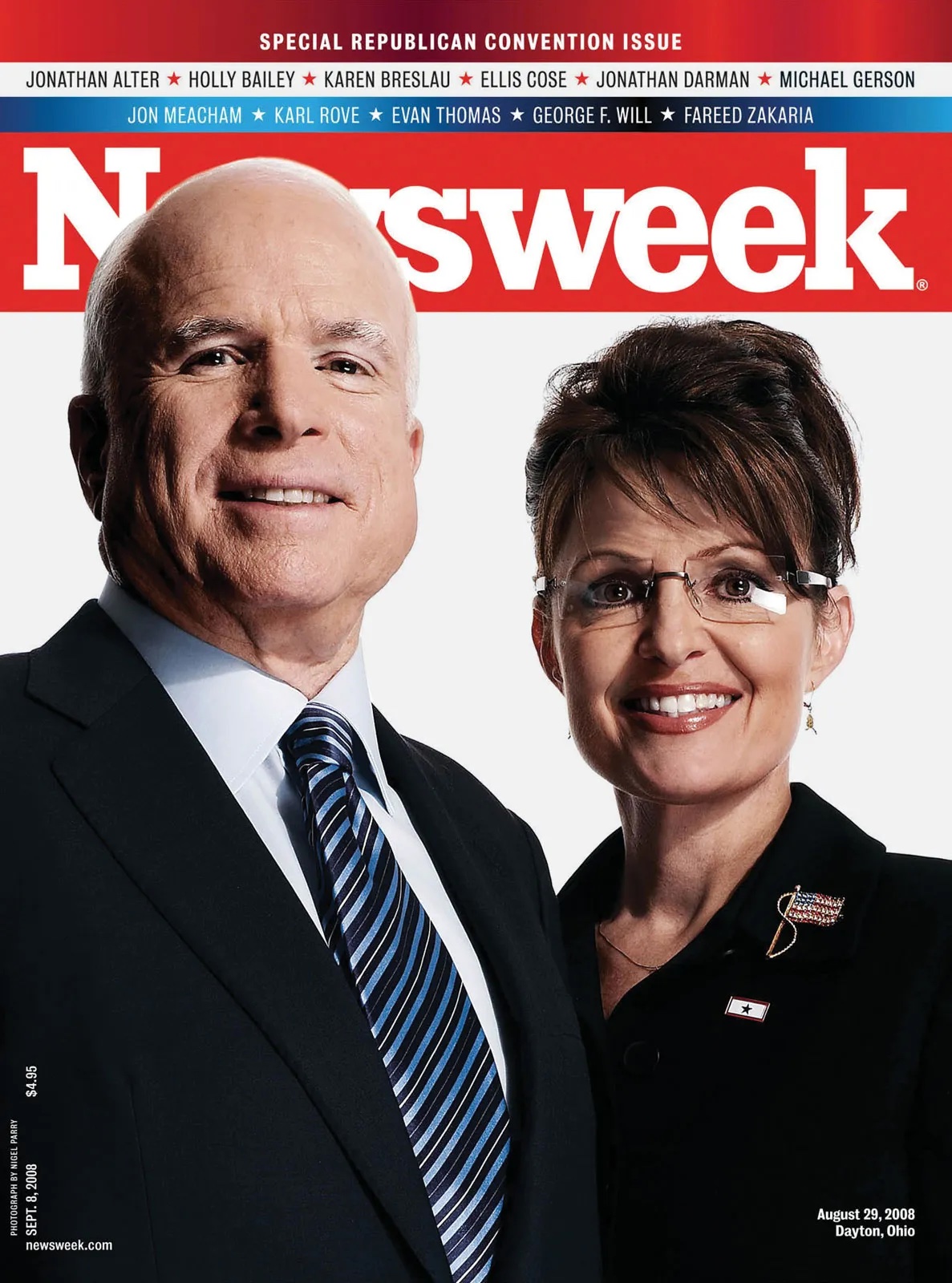
Palin’s Nomination: Trump Before There Was Trump
Sarah Palin’s nomination as John McCain’s running mate in 2008 was a coming out of sorts for the conspiracy-minded, anti-elite, anti-government populists in the GOP. Described at the time in ways that bear a striking resemblance to Donald Trump, the excitement she generated for McCain’s campaign foreshadowed the impact Trump would have in 2016.
Elevating Palin to the national stage was a pivotal moment in the transition of the Republican Party from one of principled conservatism to the authoritarian extremism of the Trump years. Her selection, based not on her qualifications for the vice presidency but on the belief that she would inject more enthusiasm into McCain’s campaign, exemplified what the party was willing to sacrifice in order to win elections and achieve the political power needed to pass their policy agenda.
Steve Schmidt, McCain’s campaign manager who played a pivotal role in securing Palin’s place on the ticket, later recognized the decision as a huge mistake and key turning point for the party. For the first time, the GOP had given a platform to and normalized the anger and conspiracy-tinged views of too many frustrated Americans. Schmidt’s explanation – that the campaign needed a jolt of energy – was a political calculation that overlooked the candidate’s many deficiencies.
Writing for the Huffington Post in 2009, one critic described Palin as
- Possessing “a dangerous sense of unearned entitlement”;
- Rambling incoherently and “with grating informality”;
- Overusing capitals and exclamation marks in her writing;
- Relying not on learning the issues but on “personality and platitudes”; and
- Being a liar with a “seemingly boundless capacity for deception and delusion”.
On this last point, the same critic claimed, one journalist “has kept a running tally of Palin’s numerous prevarications”. That has not kept many Christian fundamentalists from supporting her, the critic further noted, as they were “untroubled by her cognitive dissonance”.
And separately, in an earlier 2009 profile of Palin for Vanity Fair, another critic wrote of Palin, “No political principle or personal relationship is more sacred than her own ambition.”
In other words, Pailin was an early version of Trump. Though she didn’t provide enough of a jolt to boost McCain to victory, she showed that her brand of politics could stir up the Republican base, generate excitement, and inspire loyal support despite her shortcomings. She did enough to worry many conservatives like George Will that she would run for president in 2012. And many of them made the same mistake that has repeatedly been made of Trump: They viewed her as the source of the anti-intellectual populism that threatened the conservative movement when she was simply able to harvest what the party had already sown.
As Joshua Green, a former editor at The Atlantic, wrote in 2011 in reference to concerns over Palin, “Arguing that anti-intellectualism represents a danger to the conservative movement seems a strange tactic when most Republicans in Congress profess not to believe in global warming and when some large portion of the conservative base thinks that the president was born in darkest Africa.”
NOTE: While Green makes an important point here, he confuses conservatism with Republicanism. By 2011, the Republican Party had given its loyalty to people who were willing to sacrifice their conservative democratic principles for political power. It is a mistake commonly made even today; such people are radicals, not conservatives.
Party conservatives only temporarily held off the harvest. Palin was a lightning rod for the birth and growth of the Tea Party. She appeared as a keynote speaker at a Tea Party fundraiser early in 2010 to ridicule President Obama, declare the Tea Party to be the future of politics, and call for political leaders willing to embrace divine intervention to make the country stronger. Though she opted against running as the Tea Party candidate in 2012, eight years after her run with McCain, Trump reaped what she did not.
The pundits who feared Palin might be the future of the Republican Party understood the danger but not its source.

